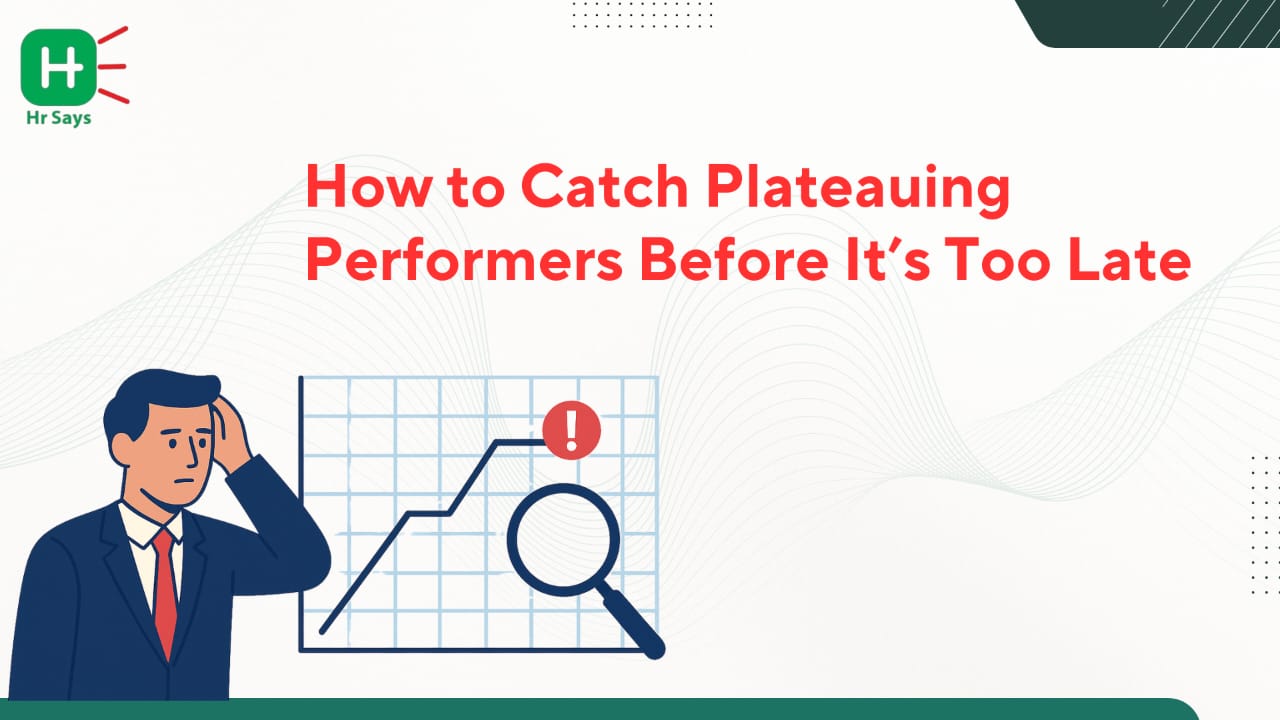What happens when someone who once lit up your team suddenly feels... dimmer? It’s subtle. Easy to miss. Until it starts affecting the entire flow.Identifying the plateauing performers at the early stages will help in avoiding the low morale and productivity in the long run. The trick? Being taught how to read between the lines.
The Invisible Stall: What Plateauing Looks Like
At first glance, everything might seem fine. The work gets done. Deadlines are met. No complaints. But something’s off. The energy feels stale.
Subtle Signs You Might Miss
Plateauing rarely makes noise. It’s quiet. Here's how it shows up:
● Output stays the same—but doesn’t grow
● Initiative fades
● Curiosity dies down
● Fewer questions, less feedback
● A shift from “How can we?” to “Do I have to?”
A once-enthusiastic team member starts coasting. Not failing. Just... floating. And that’s where it starts.
Why It Matters: Beyond Performance
It’s not just about metrics. Plateauing can spread quietly through the culture. When one slows down, others notice. Soon, excellence feels optional.
The Ripple Effect
● Delayed innovation
● Increased dependency on top performers
● Slow project momentum
● Hidden resentment in the team
Left unchecked, it erodes more than just productivity—it chips away at team morale.
Early Detection: What to Listen For
Managers often look at dashboards and metrics. But the truth is, performance plateaus speak in
whispers. You need to listen differently.
Conversations Hold Clues
Notice what they don’t say anymore:
● No new ideas
● Avoids asking “why”
● Doesn’t challenge decisions
● Stops volunteering
This silence tells a story. One of disconnection, fatigue, or lost purpose.
Ask Before You Assume
Not all dips are disengagement. Burnout, personal stress, or unclear expectations can mirror
plateauing.
Questions Worth Asking
● “What’s felt most challenging recently?”
● “Do you feel your skills are being stretched?”
● “Where do you want to grow next?”
● “What’s something we haven’t asked you to lead—but should?”
The right questions open doors. Not to push—but to understand.
What You Can Do: Nudging the Climb
Reviving a plateauing performer doesn’t mean a pep talk or a warning. Sometimes, it just means creating space.
Small Shifts, Big Impact
● Give them a new challenge—without overwhelming them
● Let them mentor someone
● Invite them into early-stage strategy talks
● Shift their routine, not their entire role
A new lens can re-ignite what routine dulled.
Conclusion
Performance dips aren’t the end—they’re signals. Plateauing doesn’t mean someone’s checked out. It just means they’ve paused. And with the right nudge, they can climb again. Don’t wait for the performance review to notice. Notice now.

 Plateauing performers often fly under the radar until it's too late. By spotting early signs—subtle behavioral shifts, silence, and lack of curiosity—leaders can intervene before motivation dips too far.
Plateauing performers often fly under the radar until it's too late. By spotting early signs—subtle behavioral shifts, silence, and lack of curiosity—leaders can intervene before motivation dips too far.








.jpeg)
.jpeg)

.jpeg)





.jpeg)



.jpeg)

.jpeg)



